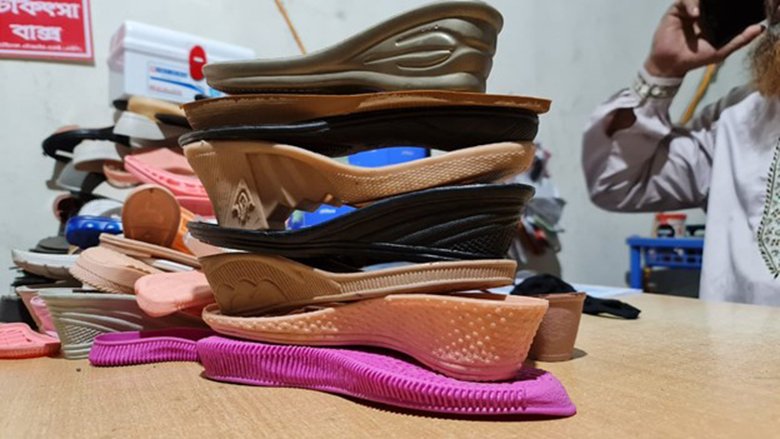Challenges
About half of Bangladesh's population depends for its livelihood on 9 million microenterprises. These microenterprises constitute 56% of the country's total employment and 25% of its GDP. While critical to the nation’s economy, the rapid growth of the manufacturing and agribusiness sectors has led rapid depletion of natural resources and massive air, soil, and water pollution. The pollution undermines the growth itself. Cumulatively, the impacts of microenterprises on the environment are substantial. A 2014 survey showed only 6 percent of microenterprises disposed of solid wastes properly. Contamination caused by microenterprises is often much higher than necessary because owners lack the funds to invest in technologies that help reduce pollution. Owners also lack access to new markets and ancillary value chain services, which keep them smaller in size and less able to make changes.
Approach
To address this, The World Bank is supporting government initiatives to help microenterprises adopt cleaner technologies.
The Sustainable Enterprise Project helps about 50,000 microenterprises adopt environment-friendly practices and occupational health and safety measures in the manufacturing and agribusiness sectors. The project provides loans to microenterprises to adopt innovative, environmentally sustainable technologies and practices.
The project facilitated the use of resource‐efficient technologies and set up shared service facilities for microenterprises. It also promotes basic safety standards and aims to certify eco‐labeled products.
With the project interventions, more than 80 percent of beneficiary microenterprises have adopted improved environmental and occupational practices, including the following:
- Masks and PPEs for the use of workers;
- Hand washing facilities and separate toilets for men and women;
- Fire extinguishers and first aid boxes;
- Safe drinking water for workers;
- Air ventilators;
- Energy-saving technology (transparent roof sheets) and LED;
- Improved wiring that reduces the risk of accidents;
- Provision of solid waste bins with waste sorted at source and recycled;
Results
From 2018 to 2022:
- SEP spans 37 districts and has helped 49,533 microenterprises.
- 84% of the microenterprises supported by SEP are owned by women.
- MTR results depict that about 80% microenterprises have adopted at least one environmentally sustainable practice (ESP), of which about 63% reported improved annual savings, 68% increased purchasing capacity, 85% created job opportunities, and 61% reduced poverty.
- 69.72% of microenterprises reported using ESPs for over 12 months, and 60% claimed health benefits were one of the main motivations for adopting these practices.
- 30,710 microenterprises were trained in environmental management, good agriculture practice (GAP), business development, marketing, branding, coping with COVID-19, and various technical topics.
- 15 shared service centers were established in clusters to give microenterprises access to design, product development, and promotion services. These included design labs, artificial insemination centers, tissue culture service centers, micro-storage facilities, and organic composting service centers, etc.
- 254 Environment Clubs were formed with microenterprises across the country to promote sharing of best practices in agribusiness and manufacturing sectors.
Bank Group Contribution
SEP is funded through an International Development Association credit of US$110 million.
Partners
- Palli Karma‐Sahayak Foundation (PKSF), the Government owned not-for-profit organization, contributes US$20 million as additional resources to the project financing envelope.
- The project collaborates with 47 partner organizations, mainstreaming environmentally sustainable practices and cleaner technologies among 49,533 agriculture and manufacturing MEs.
Moving Forward
SEP supports the government's vision of ensuring sustainability and inclusive growth through the adoption of a green growth strategy. At present, the project covers only 0.55% of the 9 million microenterprises in Bangladesh, and only 1.60% of PKSF-organized microenterprises, of which there are 3.1 million. Many of these microenterprises can benefit from access to enhanced partnerships, knowledge transfers, and innovations in technology and financing, especially as the demand for sustainable products grows. Both demand and supply of sustainable products and services need to be nurtured as they are foundational to Bangladesh’s long-term green growth.
Beneficiaries
- SEP’s beneficiaries are commercially-viable owners of microenterprises across the manufacturing and agribusiness sectors. Their manufactured products include leather goods, mini-textiles, light engineering services, plastics, food-processing, loom, and metal products. Their agribusiness products include livestock, horticulture, aquaculture, and poultry.
- PKSF and its Partner Organizations are also beneficiaries of SEP training on environmental sustainability.
- Bangladesh’s biodiversity and its citizens are the ultimate beneficiaries of the project.
